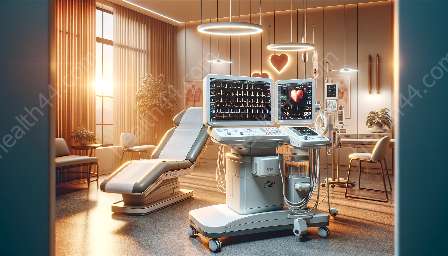Electrocardiogram (ECG or EKG) machines are essential medical devices used to monitor the electrical activity of the heart. They play a vital role in diagnosing various cardiac conditions and are widely used in healthcare settings. In this comprehensive guide, we will explore the different types and functions of ECG/EKG machines, highlighting their significance in modern medicine and patient care.
Introduction to ECG/EKG Machines
ECG or EKG machines are non-invasive medical devices that record the electrical impulses generated by the heart as it beats. This information is displayed as a series of waveforms, known as an electrocardiogram, which provides valuable insight into the heart's functioning. ECG/EKG machines are used in hospitals, clinics, and ambulances to monitor patients experiencing chest pain, palpitations, or other symptoms related to heart conditions.
Types of ECG/EKG Machines
1. Resting ECG Machines: These are the most common type of ECG machines and are used to record the heart's electrical activity while the patient is at rest. Resting ECG machines are often found in outpatient settings and are essential for routine screenings and initial assessments of cardiac health.
2. Stress ECG Machines (Treadmill ECG): These machines are designed to monitor the heart's activity during physical exertion, such as treadmill exercises. Stress ECG tests help healthcare professionals assess the heart's response to increased workload and are valuable in diagnosing conditions like coronary artery disease.
3. Holter Monitors: Holter monitors are portable ECG devices that patients can wear to continuously monitor their heart activity over a 24 to 48-hour period. These devices are useful in detecting intermittent cardiac abnormalities that may not be captured during a standard resting ECG.
4. Event Monitors: Event monitors are similar to Holter monitors but are used for shorter durations, typically up to 30 days. These devices are activated by the patient when they experience symptoms, allowing healthcare providers to capture specific episodes of abnormal heart rhythms.
Functions of ECG/EKG Machines
1. Diagnostic Tool: ECG/EKG machines are crucial diagnostic tools for identifying various cardiac conditions, including arrhythmias, coronary artery disease, and heart attacks. By analyzing the patterns and intervals of the recorded waveforms, healthcare professionals can make accurate diagnoses and develop appropriate treatment plans.
2. Monitoring: ECG/EKG machines are used for continuous monitoring of patients in critical care units, emergency rooms, and during surgeries. They provide real-time data on the heart's electrical activity, enabling healthcare teams to detect any abnormalities promptly and intervene as necessary.
3. Risk Stratification: ECG/EKG tests are utilized to stratify the risk of cardiovascular events in patients with known or suspected heart conditions. The results of these tests help determine the urgency of treatment and the need for further diagnostic interventions.
4. Research and Education: ECG/EKG machines are indispensable in research studies and medical education. They aid in understanding the physiology of the heart, exploring new diagnostic techniques, and training healthcare professionals in the interpretation of cardiac rhythms.
Importance of ECG/EKG Machines in Modern Medicine
ECG/EKG machines are invaluable in the management of cardiovascular health. They facilitate early detection of heart problems, enable continuous monitoring of high-risk patients, and contribute to personalized treatment strategies. Additionally, these devices play a pivotal role in advancing research and improving medical training, ultimately enhancing patient outcomes and overall cardiac care.
Conclusion
ECG/EKG machines are indispensable tools in the diagnosis and management of cardiac conditions. Their versatility, accuracy, and portability make them essential in various clinical settings, ensuring timely and accurate assessments of heart health. As technology continues to evolve, ECG/EKG machines will undoubtedly remain an integral part of modern healthcare, empowering practitioners to deliver efficient and personalized cardiovascular care.


